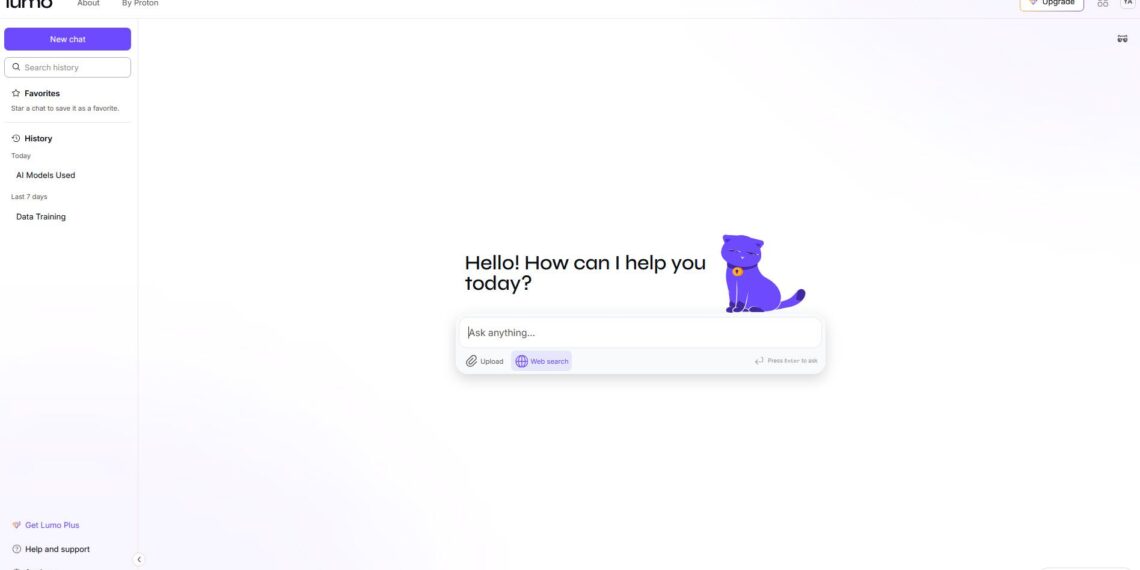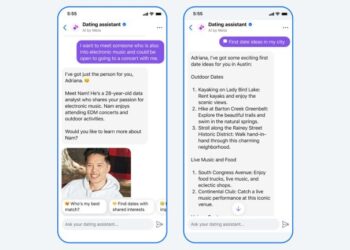Select Language:
In the crowded landscape of AI chatbots, one stands out for prioritizing your privacy. I tested it myself, and it offers the advantages of most AI chatbots—without collecting or exploiting your personal information in return.
Lumo is the only chatbot designed specifically to safeguard your privacy. Unlike popular options such as ChatGPT, Gemini, or Claude, which often use your conversation data to improve their models—raising significant privacy concerns—Lumo takes a different approach. It’s developed by Proton, a Swiss company renowned for its privacy-first ethos, building all of its products around transparency, security, and user protection. Since Proton relies solely on subscriber revenue rather than advertising, it has no motive to harvest and sell your data.
This means that while using Lumo, you enjoy several privacy advantages:
– No conversation logs stored on servers; all chats remain on your device.
– End-to-end encryption prevents anyone, including Lumo itself, from accessing your chat history.
– Your data isn’t shared with third parties, advertisers, or government agencies. Its servers are located in Switzerland and fall outside U.S. jurisdiction.
– Lumo doesn’t use your interactions to train its AI models, preserving your personal information from being exploited for other purposes.
This privacy-centric design results in a chatbot that’s far more discreet than mainstream counterparts. Additionally, it features a “Ghost mode,” which instantly deletes your current chats upon closing the window, further enhancing your privacy.
Lumo’s training data comes from open-source AI models optimized by Proton. It automatically selects the best model for your specific task from the current lineup, which includes models like Mistral Nemo (general tasks), Mistral Small 3 (efficiency), Nvidia OpenHands 32B (coding), and OLMo 232B (open-source language model). OLMo, developed by the Allen Institute, is known for its transparency—offering open access to its datasets, code, and evaluation methods. All models primarily train on publicly available data such as books, articles, and websites, ensuring no copyright issues from proprietary data.
While Lumo offers impressive privacy benefits, its features are limited mainly to text-based interactions. It lacks support for analyzing images or videos, and it doesn’t allow uploading such files, often showing unsupported format errors. It also doesn’t have real-time web browsing capabilities—its knowledge base is capped at October 2023 and April 2024, which can lead to outdated responses, though the Web search feature helps mitigate this.
Performance-wise, Lumo is generally suited for straightforward queries. Response times can be slow, and it’s not particularly strong at programming tasks—prompting can help improve results. Many advanced features, like unlimited chats, chat history, favorites, file uploads, and access to more powerful models, are reserved for the paid Lumo Plus subscription at €9.99 per month (roughly $12). While this unlocks more functionality, competing models like ChatGPT and Gemini offer similar or better capabilities at comparable or lower prices.
Overall, Lumo performs adequately within its scope—a privacy-focused option for basic questions and as a search engine. It’s especially appealing for programmers and tech companies concerned about protecting sensitive code or data, thanks to its strong privacy guarantees. However, if you need a more versatile AI with broader capabilities, popular alternatives like ChatGPT may still be preferable. Proton promises continuous improvements to Lumo’s open models, giving hope that its features will expand over time. For now, though, it remains a solid choice if privacy is your top priority.







